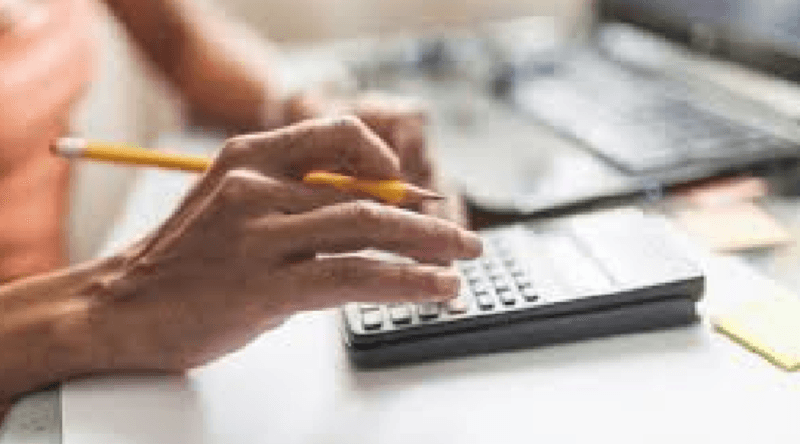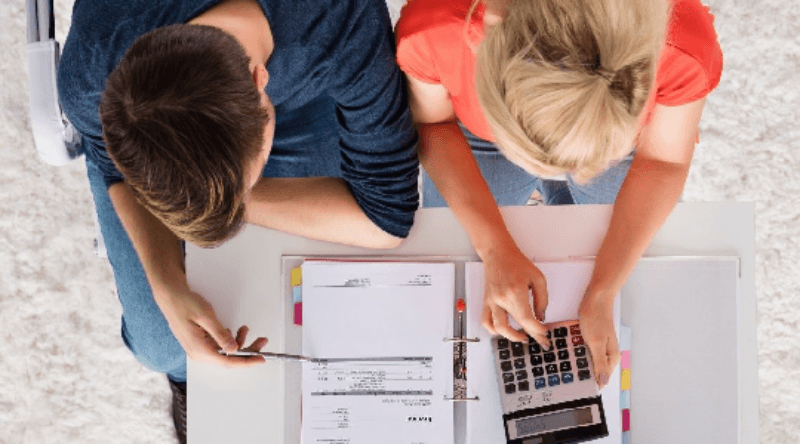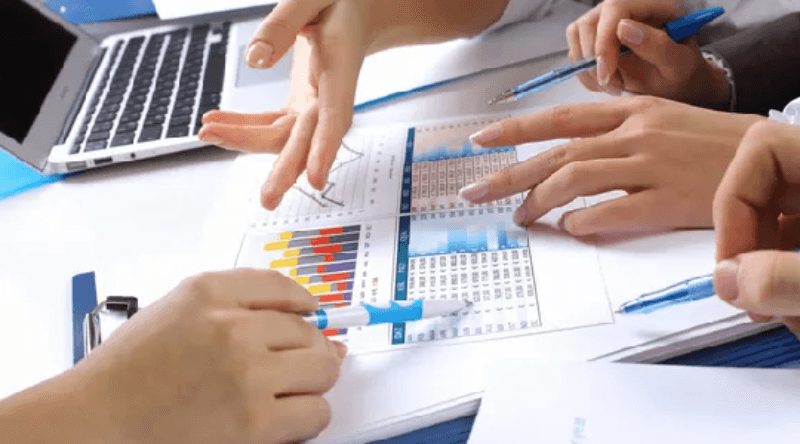
Buying a home is one of the most common goals among people. However, most of the time, it involves a large long-term financial commitment and can lead to strains on our personal finances.
It is important to keep in mind that buying a house should not put our financial stability at risk. In this article, we present you some tips on how to buy a house without jeopardizing your finances.
Some affordable options
If you are looking to buy a home without compromising your finances, there are some affordable options to consider:
- Look for properties in less popular areas but with growth potential.
- Consider buying a property under construction and paying for it in installments during the building process.
- Look for properties in need of repairs or renovations and offer the seller a lower price.
- Research government affordable housing programs and/or mortgage loans with low interest rates.
- Consider buying a property with friends or family and splitting the costs.
All of these options may be more affordable for your budget, but always be sure to do a detailed cost analysis before making any decisions.
What should we consider before buying a house?
Before buying a home it is important to consider several factors to ensure that the investment is successful and not put our finances at risk. Here are some aspects to consider:
- Budget: it is essential to know how much we can spend and how much we can borrow to determine the maximum amount we can invest in a property.
- Area: it is important to choose a neighborhood that suits our daily needs, as well as to consider the future revaluation of the property.
- Size: we must carefully evaluate how many square meters we need and if the property has potential for growth or adaptation.
- Condition of the property: it is essential to make a thorough inspection to detect possible problems and evaluate the cost of necessary repairs.
- Time of permanence: before buying it is important to ask ourselves if we are going to live there for a long period, as this will influence the
- profitability and possible return on investment when selling or renting the property.
These are just a few aspects to consider before buying a house. It is important to take the time to evaluate each one before making such an important decision and committing our finances in the long term.
Have a clear idea of our needs
The first step to buying a home without compromising our finances is to have a clear idea of our needs. What type of home do we need? How much space do we need? What area do we want to live in? What services and amenities are essential for us?
It is important to make a detailed list of our needs and priorities, and to take into account our current financial situation. We should not commit ourselves to buying a home that exceeds our means, as this can lead to great financial stress in the long run.
In addition, it is advisable to seek professional advice in the home buying process, both in terms of seeking financing and selecting the right property. A real estate expert can help us find the best options and negotiate the price and conditions of the contract.
Knowing our budget
Before starting the process of buying a house, it is important to know our budget. For this, we must evaluate our current financial situation and determine how much we can invest in the purchase of a property.
To know how much you can afford, it is necessary to take into account your monthly income and fixed expenses, such as credit card payments, personal loans and basic expenses such as food and transportation. With this data we can determine what our maximum purchase limit is.
It is also important to take into account the additional expenses involved in buying a house, such as taxes, insurance and maintenance costs. We must be sure to include these expenses in our budget so as not to compromise our finances in the long run.
Once we are clear about our budget, we can start looking for properties that fit our financial possibilities. It is essential to be realistic and not look for a house that is beyond our financial possibilities. Knowing our budget will allow us to buy a house without putting our long-term economic and family stability at risk.
Find out about market conditions
Before you begin your home search, it's important to research and be aware of market conditions. This includes knowing the average prices of homes in the area you are interested in, how long they usually take to sell, whether there is a shortage of supply or demand, among other factors that may affect your ability to buy.
You can obtain valuable information through the Internet, visiting real estate portals or consulting a real estate agent who knows the market well. It is also advisable to attend housing fairs or expos to be aware of the latest trends and developments.
Finding out the market conditions will allow you to have a clear and realistic idea of how much you can spend on your new home without compromising your finances. It will also help you to better negotiate the price and terms of the contract with landlords or real estate agents.
The importance of saving
Saving is key to achieving any long-term financial goal, such as buying a house or a car. It is important to keep in mind that saving does not only mean putting money away in a bank account, but also reducing unnecessary expenses and looking for ways to increase income.
Saving can also be helpful in dealing with financial contingencies, such as a medical emergency or an expensive car repair. If you already have an emergency fund in place, you can focus on saving for your long-term goal.
Remember that saving doesn't have to be boring or restrictive. You can make it fun by setting goals and rewards for yourself. For example, if you manage to save a certain amount of money each month, you could treat yourself to a little treat like buying dinner at your favorite restaurant.
Save for a down payment
Before you buy a home, it's important to save for a down payment. The down payment is a significant amount of money that you must pay at the beginning of the home buying process. Generally, a down payment of 20% of the price of the home is required. If you can't afford to pay 20%, you will have to pay private mortgage insurance (PMI), which will increase your monthly costs.
To save for the down payment, set a goal and start saving a fixed amount each month. You can also consider cutting back on expenses, such as eating out or buying new clothes, to save more money. In addition, look for opportunities to increase your income, such as working overtime or selling items you no longer need. You may also consider government programs that help with down payments such as FHA or VA.
Save for additional expenses
Buying a home isn't just about the sales price. You also have to factor in additional expenses such as taxes, realtor fees, mortgage insurance and necessary repairs. Therefore, it is important to save for these additional expenses to avoid compromising your finances.
A good way to save is to set a monthly budget and look for ways to reduce your expenses. For example, you could eat at home instead of going out to dinner or cut your subscriptions to services you don't use.
You might also consider getting a mortgage with a higher down payment. While this means less money available in the short term, it also means you'll have a lower mortgage and pay less interest in the long run.
Remember that buying a home is a long-term financial commitment. Saving for additional expenses will help keep your finances balanced and ensure that you can enjoy your home without financial worries.
Choosing a loan that's right for you
Before you apply for a loan to buy a home, it's important to make a realistic assessment of your ability to repay the loan and its interest. In addition, there are a few tips to keep in mind:
- Compare different mortgage loan options.
- Evaluate the interest rate and down payment requirements.
- Also consider additional costs, such as insurance and fees.
- Don't commit to a loan you can't afford to repay in the long run.
- Make sure you fully understand the terms and conditions of the loan.
Remember that choosing the right loan for you is essential to ensure your financial stability and your family's long-term well-being.
Financial Institution
Before buying a home, it is important to shop around and compare the options offered by different financial institutions, such as banks, credit unions and private lenders. It is important to consider the interest rate, payment terms and overall loan conditions.
In addition, it is advisable to make sure that the financial institution is regulated and authorized by government entities to avoid scams and fraud. Do not rush to accept the first offer you receive. Take the necessary time to analyze all the available options. This will help you make a more informed decision and choose the financial institution that best suits your needs and ability to pay.
Interest Rate and Loan Term
The interest rate and loan term are key elements to consider when buying a home without compromising your finances. It is important to find a low interest rate to avoid paying more interest than necessary over the term of the loan.
The term of the loan is also important, as the shorter the term, the lower the total amount of interest you will pay. However, a longer term can mean lower monthly payments and allow you to have more leeway in your budget.
It is important to analyze what is the ideal combination between interest rate and loan term that will allow you to buy the house you want without compromising your finances. Do not hesitate to ask for advice from experts in finance and mortgage credit to make the best decision.
Financial Institution
Before buying a home, it is important to shop around and compare the options offered by different financial institutions, such as banks, credit unions and private lenders. It is important to take into account the interest rate, payment terms and loan conditions in general.
In addition, it is advisable to make sure that the financial institution is regulated and authorized by government entities to avoid scams and fraud. Do not rush to accept the first offer you receive. Take the necessary time to analyze all the available options. This will help you make a more informed decision and choose the financial institution that best suits your needs and ability to pay.
Interest Rate and Loan Term
The interest rate and loan term are key elements to consider when buying a home without compromising your finances. It is important to find a low interest rate to avoid paying more interest than necessary over the term of the loan.
The term of the loan is also important, as the shorter the term, the lower the total amount of interest you will pay. However, a longer term can mean lower monthly payments and allow you to have more leeway in your budget.
It is important to analyze what is the ideal combination between interest rate and loan term that will allow you to buy the house you want without compromising your finances. Do not hesitate to ask for advice from experts in finance and mortgage credit to make the best decision.






